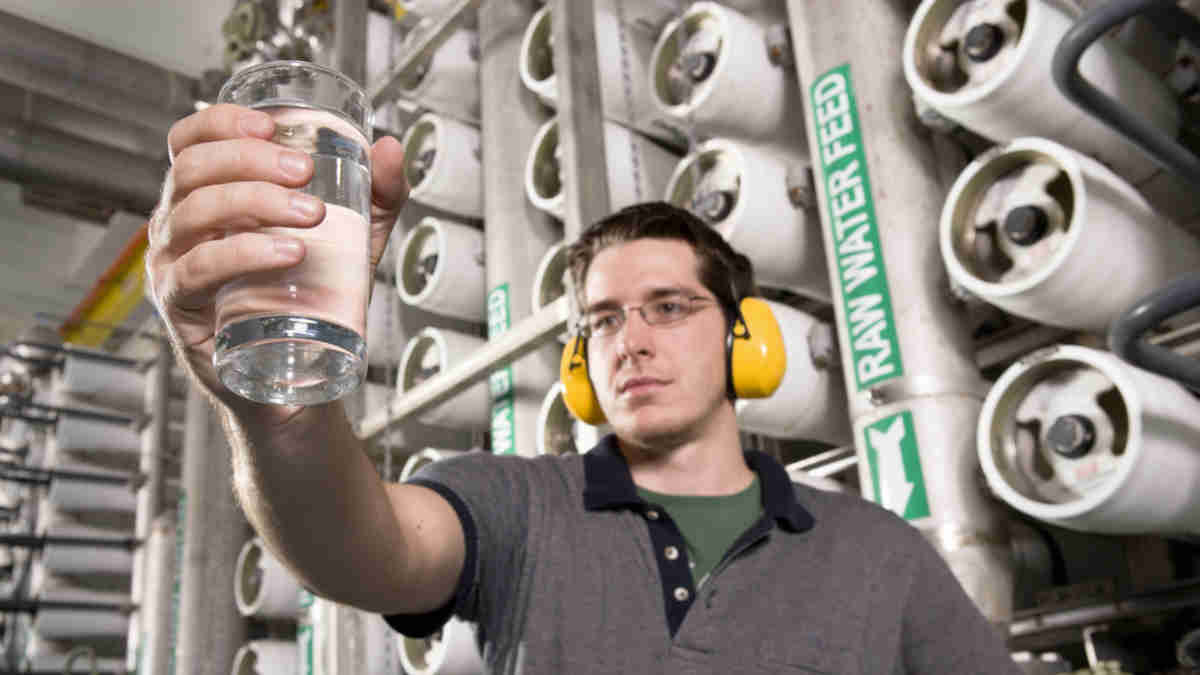SciDev is an Australian leader in PFAS remediation
The company is on a strong trajectory as PFAS makes headlines
Stockhead reached out to SciDev’s CEO, Sean Halpin
They call PFAS the “ forever chemicals” because they tend to stick around forever.
Short for Per-and Polyfluorinated Substances, PFAS are used in tons of stuff, like non-stick cookware, waterproof clothing, and even in firefighting foam.
But these sneaky little compounds don’t break down easily (hence the name forever chemicals), so they end up lingering in our environment, water, and even in our bodies for ages. Studies have linked them to all sorts of health issues, from cancer to liver problems.
PFAS has been getting some bad press lately after the largest maker of these chemicals, 3M (NYSE:MMM), offered to pay US$10 billion to clean up PFAS-contaminated waterways in the US.
Australia meanwhile is amongst the world’s hotspots for this toxic stuff, along with some other places like China, Europe, and North America.
Cleaning up PFAS is no easy feat, but there’s one ASX-listed company that might be up to the challenge: SciDev (ASX:SDV).
The ~$67m market capped company is a chemical water treatment outfit that owns a world-leading tech to deal with PFAS.
“PFAS is both a domestic and overseas issue – it’s a global problem,” explained SciDev’s CEO, Sean Halpin.
“What makes them so troublesome is how useful they were, and the fact they were used in a wide range of consumer and industrial products.
“Because of that, there’s been widespread contamination of PFAs in drinking water sources, freshwater sources, groundwater aquifers, and so on.”
How humans get exposed to PFAS
PFAS is also highly soluble and mobile, which means it can easily migrate long distances into groundwater and surface water, making its way into rivers through rainwater runoff.
Humans can be exposed to PFAS through a range of different ways such as contaminated drinking water and food consumption.
The negative effects PFAS have on human health are well documented – including fertility issues, birth defects, and a wide range of cancerous thyroid issues.
“And when coupled with the fact that PFAS chemicals don’t break down in the environment or within our bodies, they continuously accumulate and the longer we’re exposed, the higher their concentration within our bodies and in the environment.
“So this makes PFAS a really serious problem,” Halpin told Stockhead.
What Australia is doing about it
The Australian Government, for its part, has worked since 2002 to reduce the use of certain PFASs.
The Department of Defence for instance has a comprehensive PFAS Investigation and Management Program underway, which has identified around 27 Defence sites that are now undergoing investigations.
The Department of Infrastructure, Transport, Regional Development, Communications and the Arts is also undertaking a PFAS investigation program at airports where firefighting services have historically used PFAS-containing foams.
For most people living in PFAS affected areas, the government has advised that the highest risk of exposure is likely to be through the consumption of contaminated groundwater (i.e. bore water) and food grown using contaminated groundwater.
SciDev on front line in fight against PFAS
SciDev has so far remediated over 30 PFAS‑impacted sites in Australia to combat this problem, treating in excess of 7 billion litres of PFAS‑contaminated water across a range of applications.
SciDev has also done PFAS remediation work in the US, where the market across 55,000 PFAS sites is estimated at a whopping $220 billion.
The company has developed what some say the most effective, compliant, sustainable, and commercially viable treatment solution available on the market for addressing the growing issue.
“When we talk about PFAS, SciDev has two core technologies – Fluorofix which is the PFAS treatment stage, and RegenIX, a regeneration process that extends the life of the Flurofix,” said Halpin.
Fluorofix is the only commercially available solution that can treat large volumes of highly contaminated water to below the limit of reporting of 0.00023ug/l ,and generate waste volumes of less than 0.001%.
FluorofIX is also highly effective at removing the full profile of long-chain and short-chain PFAS molecules, whereas other solutions currently target long-chain PFAS molecules only.
This feat is made possible by using SciDev’s world-leading, cutting edge ion-exchange technology, the Anion Ion Exchange
RegenIX meanwhile is SciDev’s ion exchange resin regeneration technology, which is integrated into all of the company’s treatment systems without significant additional capital expenditure costs.
“We have tried and tested our products in everything from highly contaminated liquid waste, all the way to low level contamination in groundwater aquifers.
“We have improved our process over the last eight years through all that, and we now have fully commercialised products that we’ve developed for the Australian market.
“We now see global opportunities through the more widespread regulations, and a huge market that’s developing in front of us.
“And we have the right technology to take it up,” Halpin said.
Blue chips clients and new markets
SciDev’s clients include ASX giants like Cleanaway Waste Management (ASX:CWY) where it’s deploying a Build Own Operate (BOO) water treatment plant in Queensland to treat PFAS-impacted leachate.
Last month, SciDev also secured a contract with Ventia to supply a BOO temporary water treatment plant in Victoria to treat PFAS contaminated surface water. The contract is estimated at approximately $2m in revenue over a 6-month period.
“Our gross margins for building operate projects range from 30% right up to 90%. But as a general rule of thumb, Build Own and Operate contract’s margins are around 30% to 50%, but they can go north of that,” says Halpin.
Scidev also works with clients in construction and infrastructure, as well as mining, oil & gas companies including those in the US.
Its product Maxiflox is used by mining companies to treat mine site tailings water that have high salinity levels, to assist in maximising water recovery whilst minimising the tailings footprint.
While the company already has an established business here in Australia, Halpin says he wants to grow and develop new frontiers.
“What we’re exploring right now are the European and the North American markets,” said Halpin.
“Around eight or nine months ago, we put boots on the ground over there. So although we are focused on domestic growth, some of the big opportunities that we’re looking at are in fact overseas.”
“Aggressive growth trajectory”
Revenue for Q3 came in strongly at $29.1m, up 38% on the pcp. On a year to date basis, unaudited underlying EBITDA was $6.8m, up 12% on the pcp.
“We’re very much in an aggressive growth trajectory at the moment. And that’s one thing we feel we’re able to to continue on doing, especially on the chemical services business segment,” said Halpin.
“We’ll be focusing on delivering our strategy of taking our PFAS technology into international markets, and continuing to grow market share within mining oil and gas globally.
“This is certainly a good time for the company, given the extent of the opportunity in front of us, and how well we’re positioned to capitalise on that,” said Halpin.
SciDev share price today:
A few other water-focused stocks on the ASX
Fluence specialises in providing plug-and-playm and cost-effective water and wastewater treatment solutions that can be quickly installed, automatically operated, and easily maintained.
The company offers a range of services across the complete water cycle, from early-stage evaluation, through design and delivery, to ongoing support and optimisation of water-related assets.
In its latest update, Fluence reported Q1 2024 recurring revenue of $3.1m, up 82% growth over the pcp.
De.mem’s water treatment business offers “one stop shop” solutions to industrial customers.
De.mem has workshops in Melbourne, Perth, Brisbane and Launceston, and internationally in Singapore and Velbert/Germany. The company serves a long term client base which includes leading corporates from the mining, food & beverage, agricultural and other industrial sectors.
De.mem offers a wide range of services, equipment, chemicals and pumps, around its portfolio of proprietary hollow fibre membrane technologies and specialty water treatment chemicals.
Hollow fibre membranes manufactured by De.mem include the company’s Ultrafiltration, Nanofiltration and Graphene-Oxide enhanced technologies.
Duxton owns and manages a portfolio of water entitlements and assets, primarily located in the Southern Murray Darling Basin.
In the past, irrigators received a permit to access water based on their agricultural plantings; but in the 1990s, it was realised that further issue of water permits was not sustainable, so a cap was placed on the further issuance.
To allow water-users to continue to develop however, the Government developed a trade capability by recognising the permit as a perpetual right to the resource, and by separating this asset from the land. So, one can own water without land, and land without water.
Today, these rights are called water entitlements, which are a perpetual right to a particular volume of water.
Duxton has said that a forward sale of water allocations is important to farmers as it mitigates their risk.
“Forward allocation sales act as a price hedging tool for irrigators, as they provide visibility to cost and supply of allocation for the year ahead,” it said.
The views, information, or opinions expressed in the interview in this article are solely those of the interviewee and do not represent the views of Stockhead.
Stockhead has not provided, endorsed or otherwise assumed responsibility for any financial product advice contained in this article.
The post Why ASX water tech stock SciDev is on the front line in fight against ‘forever chemicals’ PFAS appeared first on Stockhead.






















